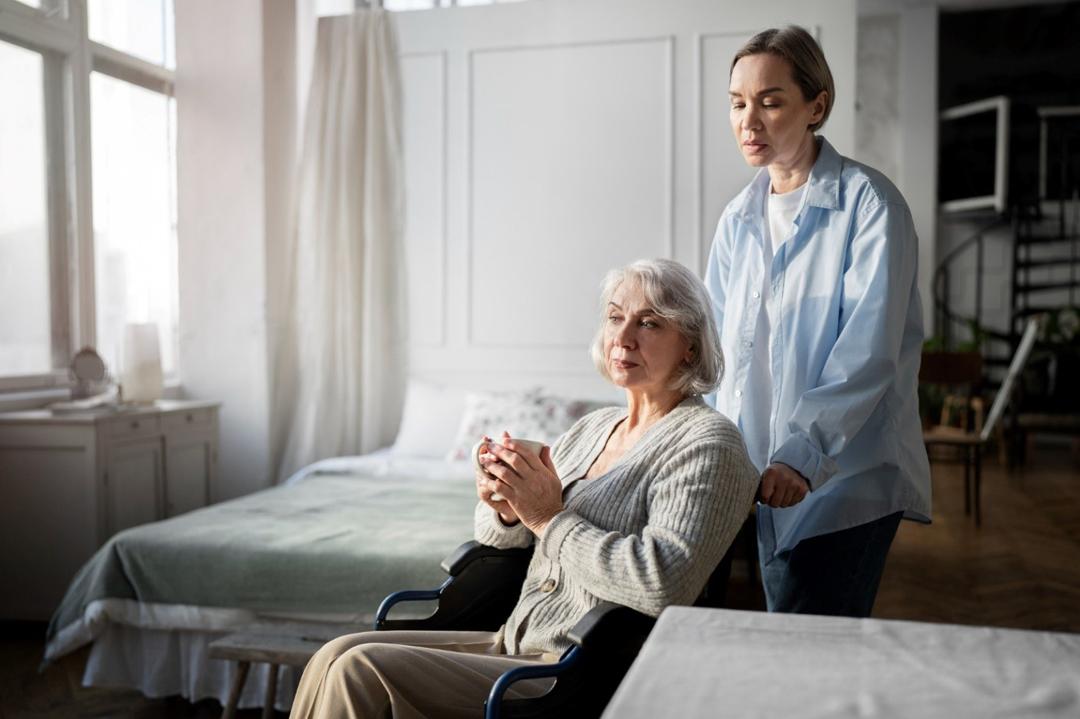
Luckily, there are many things you can do, along with the nursing home staff, to keep the risk factors for pressure ulcers at a minimal level. That’s what we’ll be talking about in this article: how to keep your skin healthy and prevent these sores from developing.
What You Can Do to Prevent Pressure Ulcers
Here are the ways you can prevent pressure ulcers as a nursing home resident:
Move Frequently
This might sound tough if you have limited mobility, but even small movements can make a big difference. If you can wiggle your toes and clench your fists, do that a few times every hour.
Ask your nurse or therapist to show you some gentle exercises you can do in bed, like lifting your head or legs a few inches off the mattress.
If you’re able to sit up, try to shift your weight from side to side every 15 minutes or so. This one’s important, especially if you spend most of your time in bed.
Work with the nursing staff to create a turning schedule. They’ll gently help you move to a different position every two hours or so. This can take the pressure off your bony areas like your tailbone, heels, and hips, which are most prone to getting sores.
Commit to a Skincare Routine
Your skin is a delicate flower. If you had a flower, you wouldn’t let it dry out, would you? The same goes for your skin. Ask the nurses to check your skin regularly for any redness, especially over your bony areas.
Let them know if your skin feels itchy or dry so that they can use special lotions or creams to keep it moist. Also, you must drink plenty of water throughout the day, whether or not you feel thirsty. Dehydration can make your skin more fragile.
Dry skin is more prone to breakdown. So, if you have dry skin, ask your doctor or nurse to recommend a good moisturizer for you.
Be Communicative About Any Discomfort
Talk to your nurses and therapists about any concerns you have about pressure ulcers. Let them know if a certain position is uncomfortable or if you have trouble moving yourself.
They’re there to help. Speak up if your bed feels too hard or your chair doesn’t give you enough support. The nursing home should have special mattresses, pillows, and cushions designed to ease pressure. Don’t be shy about asking what you need.
Eat A Balanced Diet Often
Eating healthy foods with plenty of protein, vitamins, and minerals helps your body stay strong and repair itself. You might need a special diet based on what the home serves. You should reach out to your doctor, or preferably a dietician, to whip up a plan that caters to you.
Give up Detrimental Habits
We’ve talked about how staying active, eating well, and keeping your skin clean are important for preventing pressure sores. But, there’s another factor that might surprise you: your habits.
Believe it or not, some things you might do every day can increase your risk for pressure ulcers. These habits include:
- Smoking
- Alcohol consumption
- Bad sleep routines
- Unbalanced diet
- Inadequate water intake
You need to put a stop to these habits if you want to keep your skin healthy. Quitting can be challenging, no doubt. But, if you start small and make minimal changes to your lifestyle habits every day, you’ll make considerable progress in no time.
Conclusion
Pressure ulcers are a source of great discomfort. Since prevention is better than cure, you must do everything to ensure that it does not happen in the first place.
With the tips outlined above, you can join forces with the nurses in your home to ensure that your skin remains healthy and ulcer-free.
Comments
comments